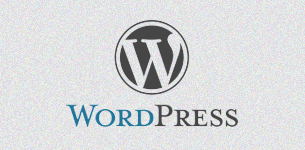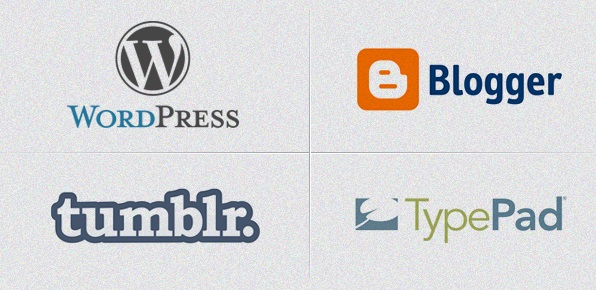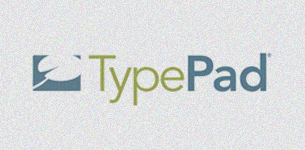In our last post of the series ‘How to Start Blogging – A Guide for Small Businesses’, we answered the most common questions you might have in your mind about kick-starting your blog. In today’s article ‘The Best Blogging Platform for Your Business’, you would be introduced to the different platforms you can use to start blogging.
The best blogging platforms for your business

1. WordPress
Self-hosted WordPress.org is the best blogging platform in our book. It is easily the most popular platform for business blogging and not without a reason.
Pros
| It is easy to use. | |
| Built for hosting blogs. | |
| It has free and paid plans, depending on how you wish to use it. | |
| There is an enormous community of developers, enabling rich features on your blog. | |
| WordPress is very flexible and more customizable than any other blogging platform. |
Cons
| You might need some more technical knowledge to set a blog on WordPress than on the other platforms that would follow. | |
| If you want your own domain name, independent of .wordpress you would either have to pay WP or a hosting service to host it. This is no biggie, if you compare the cost to all the benefits you get in return. |
Who can use – Everyone: Businesses and Individuals (both technically knowledgeable and newbies).
WP is easy to set up. However, if you are completely new to the world of blogging, you might still find it taxing. Therefore, before we start discussing WP set up (don’t worry, I will devote at least 3 posts to it), let us discuss the other options available to you.


2. Blogger
Blogger is Google’s blogging platform, and is comparatively easier to setup than WordPress, but has limited functionality. You cannot customize it completely for one (even after purchasing a custom domain).
Pros
| It is very easy to use, You need no technical knowledge. | |
| You do not need to spend on hosting as Blogger takes care of that. | |
| One good thing about Blogger is that you can link it to your Google + profile (and other Google products too). That would give your blog the credibility and visibility (on search engines) that comes by putting a (Google authenticated) face to your website. | |
| You have access to some basic blog traffic Analytics (like, the No. of Visitis on your Website, the source of visits etc.). However the insights are not enough for a full fledged business blog | |
| There are some SEO options available in Blogger now, so with some SEO knowledge, you can boost your blog’s visibility. |
Cons
| Even with the many widgets available on Blogger, the features are nowhere near what WordPress offers, therefore you have less options for customization. The reason is simple; there is a huge community of helpful WordPress developers, who continuously develop different plugins to enable more functionality on your blog. | |
| The Blog dashboard is not as intuitive as WordPress (this could just be my personal opinion, though) |
Who can use – Blogger is good for individual bloggers, and alright for small business blogs. However, I would not recommend it to businesses, who want blogging to become an integral part of their online marketing strategy.
3. Tumblr

Some businesses love it, others hate it. I would say ‘to each his own’, if there wasn’t a pattern. There is, and an obvious one. Its layout with big pictures makes Tumblr visually appealing. If you run a business where you can entice the visitor’s visual senses to successfully sell, Tumblr is what you want.
To put it plainly, if you are a visual artist, a chef, or something similar, where showcasing your work through pictures would work, Tumblr is the place for you.
Pros
| Very easy to showcase your product in pictures. | |
| Free Developer Hosting | |
| The Tumblr community is very interactive; being good at what you do, plus being interested in what others have to say would certainly pay off. | |
| Tumblr Directory – This is a great option, where your blog would get listed according to categories. So, if enough people recommend your posts for ‘Painting’, you would be featured right on top in the category. |
Cons
| Not considered good for SEO. | |
| Long blocks of content don’t work well on this platform. A witty line with a picture would work better than a long detailed post. So, your choice to choose Tumblr would depend on what your requirements are. | |
| Good luck trying to sell something ‘boring’ on Tumblr. |
Who can use – Visual artists of any kind, or any business who wants to post a lot of attractive visual content. It would work well to target a younger age group too.

4. TypePad
This is another blogging platform used by businesses. The loyal TypePadders like to boast about the great customer support.
Pros
| It has developer hosting, so no hassles there. | |
| There isn’t any storage limit. | |
| All TypePad users love it for the customer support that they get; all the back end activities are handled by TypePad. | |
| Allows you to upload posts directly from your computer. |
Cons
| Though there is a 2 week free trial for all the subscription plans, there is no free plan at all. |
Who can use – Anyone, who doesn’t mind spending $15 per month. Seth Godin has his blog on TypePad, so there has to be something there. Check it out; take a trial, and see if it fits your business needs.
There are many other platforms dubbed ‘the best blogging platform’ by different businesses. Best blogging platform for you would depend on your business requirement. Our opinion is skewed towards WordPress only because it has worked perfectly well for all our clients. Stay tuned; I would discuss how you can get started with WordPress in subsequent posts.
Tell us about the best blogging platform that you have used!
Happy Blogging!








